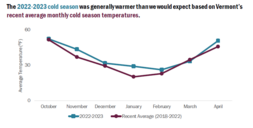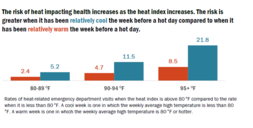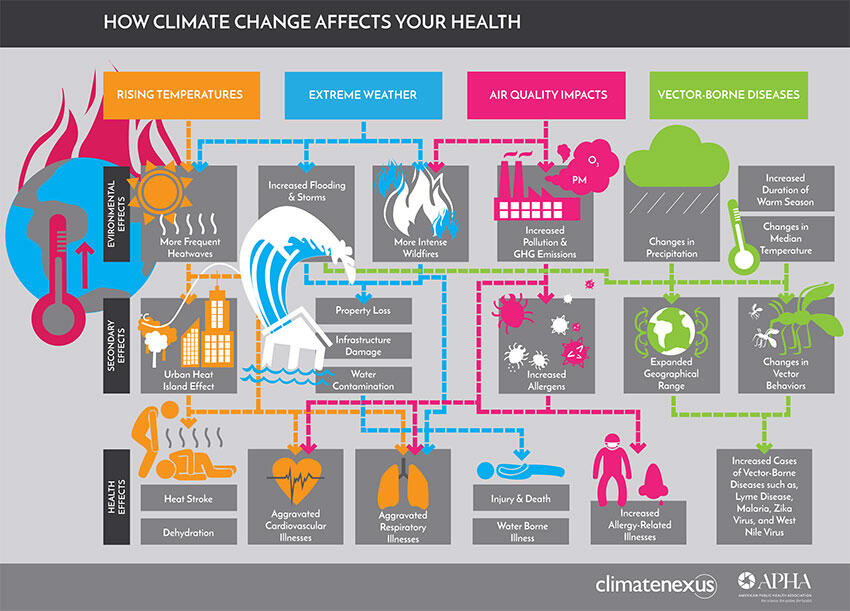Tracking Climate and Health in Vermont
Climate change is already impacting the health of Vermonters. As the state gets warmer and wetter, the impacts on health and property are increasing. The latest National Climate Assessment projects that average temperatures in Vermont will increase by 4°F, compared with recent conditions. In addition, the state will continue to experience more extreme storms.
Climate and health data can be used to track the impacts of climate change and to help communities respond. For example, data can be used to identify which parts of the state have higher rates of heat-related illness. This information can inform where cooling centers or other activities aimed at preventing heat-related illness should be located.






